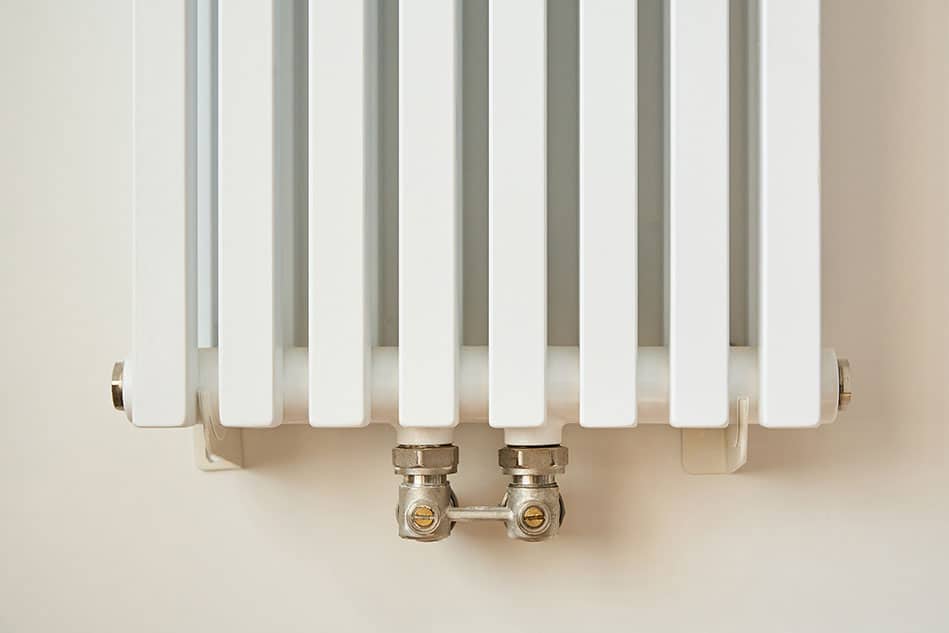Wall-mounted ACs provide comfortable cooling due to their location, but can you do the same with a heater? The answer depends on the type of heater you have. Most central HVAC vents are in the floor or ceiling, and wood or pellet stoves cannot be mounted on a wall.
However, some types of heaters can, like ductless mini-splits. Here’s what to know and how the certified Mitsubishi Electric Elite Diamond Contractors at N.E.T.R., Inc. can help you find the best heating solutions for your needs.

Why Put a Heater On Your Wall?
There are several advantages to using a wall-mounted heater. One is that it can provide even heating throughout your home, unlike floor-mounted heaters or ceiling registers that require the heat to move up or down to reach the center of the room.
Another advantage is that it can provide immediate warmth when you need it. This is great on cold winter days when you want to feel a blast of heat after walking in from the frigid outdoors, or when you want to stay toasty and comfortable indoors.
Wall-mounted heaters can also be less expensive to operate than other types of heaters, because you don’t have to turn the temperature up as high to feel the heat.
Most Heaters Don’t Attach To a Wall
Most heaters can’t be mounted or installed on the wall. For example, central HVAC systems usually have a furnace that is located in the basement, and heat is distributed using ductwork that runs throughout the home. These ducts are most often in the ceiling or floor depending on the type of home you have.
Wood and pellet stoves also don’t typically attach to the wall, because they need to be vented through a chimney. The stoves are usually freestanding to avoid the increased risk of home fires if attached to the wall or positioned too close to it.
While baseboard heaters are positioned against the wall, they are installed along the baseboards of a room. The heat must radiate out and upwards to warm the space, and these don’t contain blowers that push the warm air out into the room.
Options For Wall-Mounted Heaters
There are only a few options if you want to mount a heater on your wall:
Oil Radiators
Oil-filled radiators are a type of convection heater that is mounted on the wall but is usually positioned more towards the floor so it’s out of the way. Many models come with a built-in thermostat so you can control the temperature easily and may also have a timer so you can set it to turn off automatically after a certain period.
However, radiators can take a long time to heat up, so they are not ideal if you want quick heat. And because hot air rises and cold air falls, the heat radiators generate can be uneven and create hot and cold spots throughout your home.
Ductless Mini-Splits
Ductless mini-splits are an excellent option for a wall-mounted heater because they’re positioned around the middle of the wall and contain a fan that helps move warm air around the room.
A ductless HVAC system consists of two parts: an outdoor compressor/condenser unit and an indoor air handling unit. The indoor unit contains fan coils that circulate refrigerant through coils to transfer heat from the outdoors to the indoors or vice versa. Because ductless doesn’t generate heat but simply moves it from one place to another, these systems are incredibly energy and cost-efficient.
Advantages of Wall-Mounted Ductless Heat Pumps
Ductless mini-splits offer many advantages over traditional HVAC systems, including improved energy efficiency and the ability to provide both heating and cooling. Other than central HVAC, none of the other heating systems on this list can also provide air conditioning. These units are also incredibly quiet. Unlike window ACs and central heating systems, which can be as loud as a vehicle, wall-mounted ductless is whisper quiet.
Learn More From a Qualified Massachusetts Ductless Heating Contractor
As you can see, there are many factors to consider when deciding whether or not to put a heater on your wall. While most heaters cannot be attached to a wall, there are some options available, particularly with ductless mini-splits. To learn more, consult with a qualified heating contractor in Massachusetts to find the best option for your home.
At N.E.T.R., we can help you find the right heating solutions for your needs and budget. Our team of experienced HVAC contractors are able to answer your questions about the advantages of switching to ductless heating and cooling. Call us today at (781) 933-6387.
